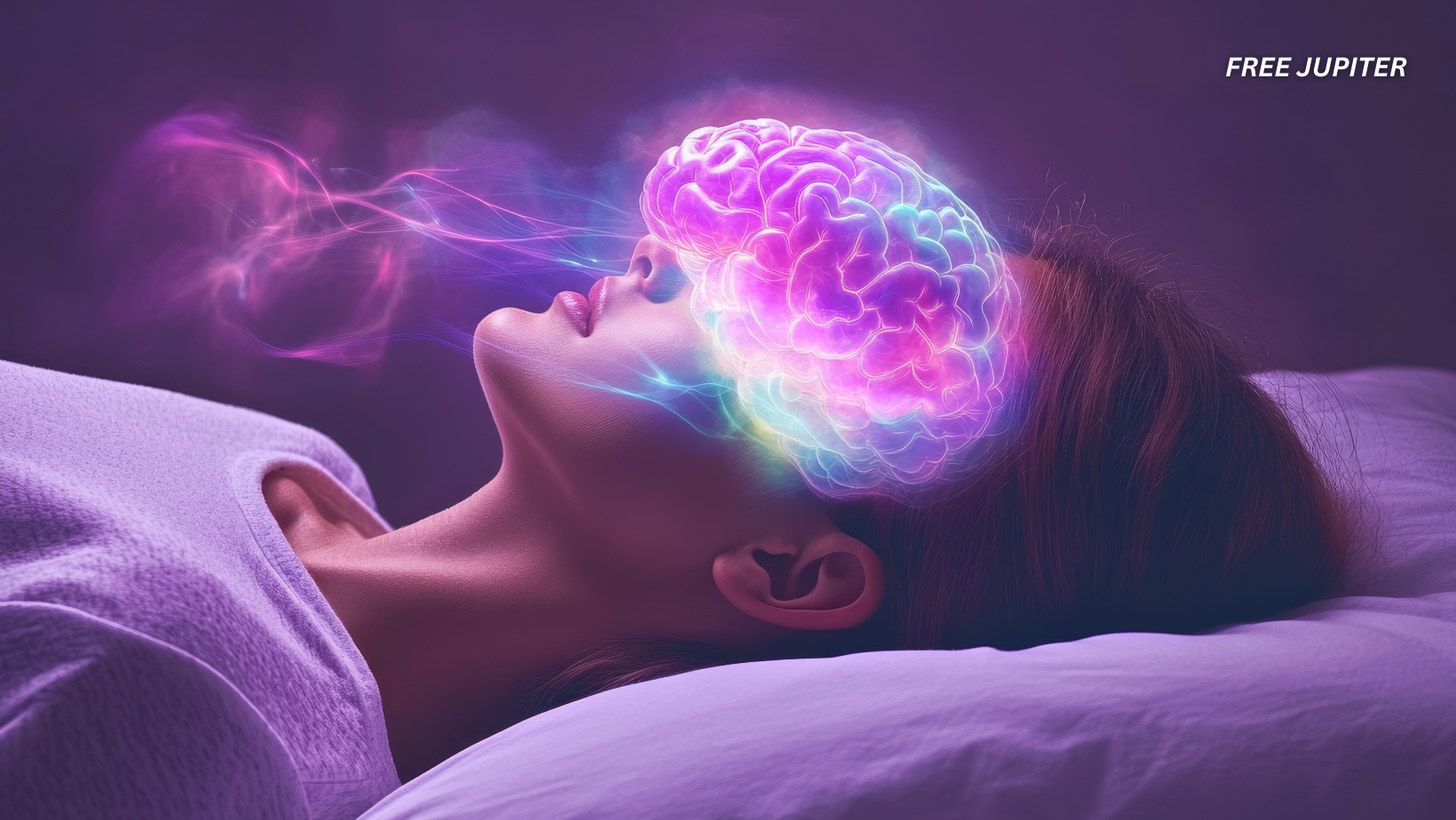Many people already know that poor sleep makes mornings harder, tempers shorter, and coffee absolutely essential. But according to an enormous study from the UK, the consequences may stretch far beyond tired eyes and sluggish afternoons. Bad sleep habits may actually make your brain age faster.
Researchers didn’t simply hand out questionnaires or observe a few hundred volunteers. They worked with over 27,000 adults, analyzed detailed MRI scans, evaluated more than 1,000 brain markers, and used advanced machine-learning tools to estimate the biological age of each participant’s brain.
The results tell a story that is both surprising and strangely intuitive: people who sleep poorly tend to have brains that look older than they should.
Below is a deeply expanded breakdown of the findings, the supporting science, and what it all means for you.
1. How Sleep and Brain Aging Connect — The Big Idea
To understand why sleep matters so much, it helps to imagine the brain as a high-performance engine. It needs fuel, rest, cooling, and regular tune-ups. The problem is that most of its “maintenance work” happens at night—especially during deep, slow-wave sleep.
In this study, the scientists calculated each volunteer’s “brain age gap”, which is the difference between:
- their actual age, and
- the age their brain looks like based on MRI scans.
A positive “gap” (e.g., your brain looks older than you are) isn’t a great sign.
What the researchers found:
People with poor sleep had brains that appeared, on average, one year older than their chronological age.
It may seem tiny, but in neuroscience, a one-year acceleration in brain aging is like discovering your engine is wearing down even when you’re driving gently.
2. The Five Sleep Habits That Mattered Most
The study didn’t rely on generic definitions of “good” or “bad” sleep. Participants rated themselves on five specific sleep traits:
- Sleep duration (too little or too much)
- Insomnia symptoms
- Snoring
- Daytime sleepiness
- Chronotype (early bird vs. night owl)
The scoring system:
Each person received a “sleep health score.” For every one point lost, their brain appeared roughly six months older.
This means even small changes—like frequent late nights or long-term insomnia—can leave measurable marks on brain structure.
3. Night Owls and Odd Sleep Schedules: Why They Show Stronger Effects
One surprising part of the study was how strongly being a night owl was linked to older-looking brain scans.
This doesn’t mean night owls are doing anything wrong—but their bodies run on a different internal clock, which can clash with everyday obligations like 9-to-5 work schedules.
Possible explanations:
- Night owls often get inconsistent sleep due to social and work demands.
- Late sleepers may miss the natural cues from sunlight that regulate circadian rhythms.
- Their sleep tends to get “compressed”, leaving less time for deep sleep.
- Circadian misalignment has been linked to higher inflammation, which accelerates aging.
Even if a night owl sleeps enough hours, misalignment can still interfere with the brain’s nightly housekeeping.
4. Why Too Little or Too Much Sleep Is a Problem
Many people assume only short sleep is harmful, but oversleeping can also be a sign of issues underneath the surface.
Too little sleep may lead to:
- Poor memory consolidation
- Irritability and emotional instability
- Reduced waste-clearing inside the brain
- Increased levels of stress hormones like cortisol
Too much sleep may indicate:
- Low-quality sleep
- Depression
- Chronic inflammation
- Underlying health issues
Both extremes decrease the amount of deep, restorative sleep, which is the stage most closely linked to brain repair and rejuvenation.
5. The Biological Side: Inflammation, Brain Waste, and Nightly Repair
The study also looked at systemic inflammation, a widespread issue that quietly increases with poor sleep.
Inflammation affects:
- Brain cells
- Blood vessels
- Immune response
- The glymphatic system (the brain’s waste-disposal network)
The Glymphatic System: The Brain’s Midnight Janitor
During deep sleep, the brain’s “cleanup crew” becomes active, sweeping out waste proteins linked to Alzheimer’s and other forms of dementia. When sleep is disrupted or insufficient, this cleanup becomes less efficient.
Over years or decades, these “missed cleanups” can contribute to faster brain aging.
Related Research That Supports These Findings
This study isn’t alone. Several major research papers over the past decade have echoed the same message: sleep matters more than we think.
A. Short Sleep and Dementia Risk (Nature Communications, 2021)
Studying nearly 8,000 adults for 25 years, researchers found that sleeping under 6 hours increased dementia risk significantly.
B. Sleep Deprivation and Brain Shrinkage (Neurology, 2014)
People with chronic sleep problems lost grey matter faster, especially in areas responsible for memory and problem-solving.
C. Sleep and Emotional Regulation (UC Berkeley, 2018)
Poor sleep weakens the connection between the amygdala (emotional center) and the prefrontal cortex (reasoning center), contributing to mood swings, anxiety, and impulsivity.
D. Memory Loss and Deep Sleep (Harvard, 2020)
Even people in their 20s showed cognitive declines when deprived of high-quality deep sleep.
E. Circadian Rhythm Disruption and Health
Research on shift workers has repeatedly shown:
- Higher rates of cognitive decline
- Faster biological aging
- More metabolic issues
These patterns strengthen the idea that sleep timing is just as important as sleep quantity.
The Hopeful Part: Sleep Habits Can Be Improved (and the Brain Responds)
Unlike genetics or age, sleep behavior is something you can modify. The brain is incredibly responsive to lifestyle changes.
Science-backed ways to support healthier sleep:
- Keep a regular schedule, even on weekends
- Avoid screens 1–2 hours before bed
- Reduce caffeine after early afternoon
- Create a relaxing wind-down ritual
- Keep your bedroom dark, cool, and quiet
- Avoid heavy meals at night
- Limit alcohol close to bedtime
- Get natural daylight exposure every morning
Even small adjustments—like going to bed 15 minutes earlier each week—can create a noticeable difference over time.
Bonus insight:
Studies show that the brain can reverse some biological aging when lifestyle factors improve, including exercise, diet, and especially sleep.
The Everyday Meaning of These Findings
While this study is rooted in advanced imaging, AI models, and statistical analysis, the core message is refreshingly simple:
Good sleep protects your brain.
Bad sleep wears it down.
You don’t need perfect sleep every night. You don’t need $500 blackout curtains or a futuristic wellness routine. What matters is consistency, quality, and respect for your body’s natural rhythm.
Your brain, quite literally, depends on it.
Featured image: Freepik.
Friendly Note: FreeJupiter.com shares general information for curious minds. Please fact-check all claims and double-check health info with a qualified professional. 🌱










